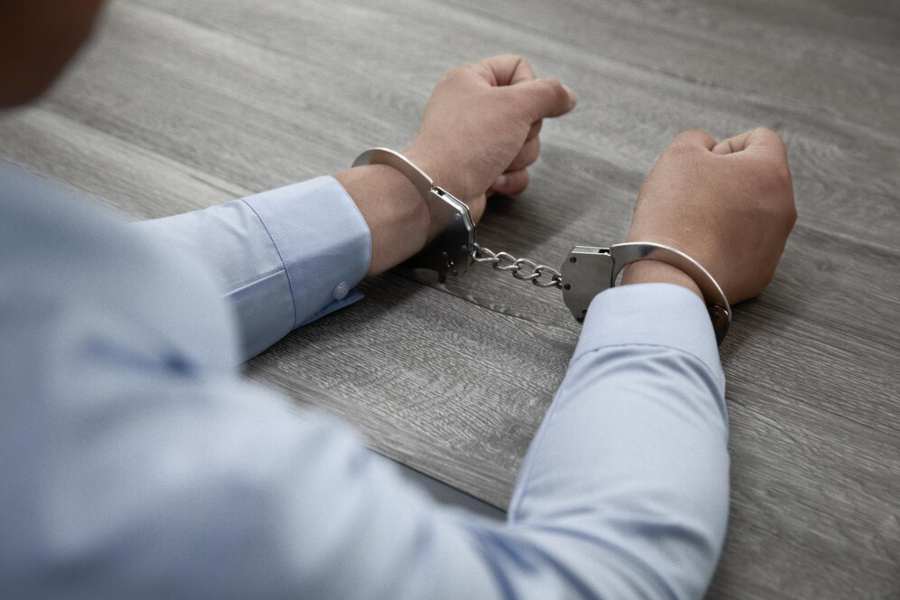If you’re on probation and wondering, Will I go to jail for first probation violation, it’s essential to understand the potential legal consequences. A probation violation occurs when an individual fails to comply with the conditions set by the court, such as failing to pass drug tests, missing scheduled meetings, or committing new offenses. While the consequences can vary based on the severity of the violation, the type of probation, and the jurisdiction, jail time is a potential outcome.
In this article, we will address the big question: Will I go to jail for first probation violation? — and explore how the justice system typically handles first-time offenders. We’ll break down the factors that influence whether or not you could face jail time, the steps you can take to minimize your risks, and how to navigate the process if you’ve violated probation.
Understanding how probation works, the legal repercussions of violating it, and how judges typically approach probation violations can help alleviate your concerns. It’s also important to know that while jail time is possible, there are often alternatives to incarceration, such as additional probation terms, community service, or rehabilitation programs.
By the end of this guide, you will have a clearer understanding of what to expect and how you can avoid further penalties.
Will I Go to Jail for First Probation Violation?
If you violate probation for the first time, jail time is not automatic, but it is a possibility. Judges will assess the nature of the violation and whether it was a minor or significant breach. For a first violation, you may face additional probation terms, community service, or mandatory rehabilitation instead of jail. However, more serious violations or failure to comply with probation requirements can lead to imprisonment. Always consult an attorney to discuss your options.
What Is Probation and What Are the Conditions?
Before asking will I go to jail for first probation violation, it’s crucial to understand the purpose and requirements of probation. Probation is an alternative to jail time, allowing individuals to serve their sentence under supervision rather than being incarcerated. This option is designed to help offenders reintegrate into society while rehabilitating their behavior following their release from prison.
The conditions of probation can vary based on the offense, but generally include requirements such as regular check-ins with a probation officer, attending mandatory programs (such as drug or alcohol treatment), maintaining employment, avoiding legal trouble, and refraining from committing new crimes. These terms are designed to support the individual in leading a productive life while being monitored by the court system.
However, violations can occur if an individual fails to meet one or more of these conditions. Violations can be technical, such as missing a meeting with a probation officer, or substantive, like committing a new offense. Understanding the terms of your probation and how the court expects you to comply can help reduce the risk of violating probation and potentially facing jail time. Clear awareness and proactive compliance are key to avoiding severe consequences for first-time violations.
Steps After a First Probation Violation: What to Expect
If you violate probation for the first time, you may be wondering what happens next. The consequences can vary depending on the type and severity of the violation, but understanding the process and how the judge evaluates your case can help you better prepare for the potential outcomes.
Types of Violations and Their Impact on Your Case
When you violate probation, there are two main types of violations: technical violations and substantive violations. A technical violation occurs when you fail to follow the conditions of your probation without committing a new crime. For example, missing a required meeting with your probation officer or failing a drug test would be considered a technical violation of your probation. On the other hand, a substantive violation happens when you commit a new offense while on probation, such as being arrested for a criminal act.
The severity of the violation will significantly influence how the judge responds. Minor violations, such as missing a probation meeting, could result in additional conditions or warnings. In contrast, more serious violations, such as committing a new crime, may result in jail time or more severe penalties.
What Judges Consider When Deciding Punishments
Judges consider various factors when deciding the consequences for a probation violation. These factors include the nature and seriousness of the violation, your past criminal history, how much time you’ve already served on probation, your efforts toward rehabilitation, and the recommendations of your probation officer. These factors will help the judge determine an appropriate response.
Possible Consequences for a First Probation Violation
For first-time violators, the consequences can vary widely. You may face additional probation terms, attend rehabilitation programs, pay fines, or perform community service. Jail time is a possibility, but it’s not guaranteed. Judges typically show leniency toward first-time violators, especially if the violation was technical or if you’ve made efforts to comply with probation requirements.
Can You Avoid Jail Time for a First Probation Violation?
It’s natural to be concerned about the possibility of jail time after a first probation violation. While jail time is a potential consequence, it is not guaranteed, especially for first-time offenders. Judges often prefer alternatives to incarceration, particularly if the offender shows a commitment to improving and rehabilitating. To minimize the impact of a probation violation, taking proactive steps can significantly improve your chances of avoiding jail.
Here are key strategies to help reduce the consequences of a first probation violation:
- Demonstrating Compliance: Make sure to show the court that you have been otherwise compliant with the conditions of your probation. Prove that the violation was an isolated incident and not a pattern of behavior.
- Seeking Rehabilitation: Voluntarily enrolling in a rehabilitation program or attending counseling sessions demonstrates a commitment to personal growth. This shows the court that you are taking responsibility for your actions and working to prevent further issues.
- Hiring an Attorney: Consulting with an experienced defense attorney can help you navigate the legal process more effectively. A lawyer can help negotiate with the court to reduce the severity of the punishment, such as advocating for additional probation terms, community service, or rehabilitation instead of jail.
By following these strategies and showing that you are actively working toward self-improvement, you can increase your chances of avoiding jail time after a first probation violation.
The Role of a Probation Officer and How They Influence Your Case
Your probation officer plays a crucial role in determining the outcome of a probation violation. They are responsible for monitoring your compliance with the conditions of your probation, and if you violate any terms, they will report the violation to the court. Beyond simply reporting, your probation officer’s input can provide valuable insight into your overall progress and any efforts you’ve made toward rehabilitation.
If a probation violation occurs, the probation officer may recommend consequences or penalties to the court. This could include extending your probation period, requiring additional programs or treatments, or suggesting stricter terms for future compliance. Their perspective on how well you’ve adhered to probation conditions will influence the judge’s decision-making process.
In many cases, the probation officer’s recommendation can be the deciding factor in whether you face jail time or alternative penalties. Being proactive in maintaining a positive relationship with your probation officer can help mitigate the impact of a violation.
Legal Rights and Protections for Probation Violators
If you violate probation, it’s essential to understand your legal rights and the options available to address the situation. Knowing your rights and preparing for the probation violation hearing is crucial in minimizing potential penalties. Here are the key points to consider:
- Contesting a Probation Violation: You have the right to contest a probation violation. If a violation is reported, you can request a hearing where you can present evidence and argue your case. It’s essential to show that the violation was either a minor mistake or that you’ve made significant strides in rehabilitation. Legal counsel can help by presenting mitigating factors and building a strong defense, which could reduce the severity of the penalties. This is your opportunity to demonstrate that the violation was an isolated incident and that you are committed to following probation terms moving forward.
- Your Rights During a Probation Violation Hearing: During the hearing, you have the right to legal representation, which can help you navigate the process and defend your case. You will be informed of the specific violation charges and have the chance to present your side of the story. It’s crucial to take the hearing seriously and come prepared with evidence, such as proof of rehabilitation efforts or compliance with other probation terms. Showing that you are actively working to correct any mistakes can have a positive impact on the judge’s decision.
Final Remarks
If you’re wondering will I go to jail for first probation violation, it’s essential to recognize that jail time is not inevitable. While it remains a possibility, especially for more serious violations, judges often seek alternative measures for first-time offenders. By showing your commitment to rehabilitation and adhering to your probation conditions, you can significantly reduce the risk of incarceration. Taking proactive steps, such as enrolling in counseling, attending rehab, or completing community service, demonstrates that you are taking responsibility and working towards personal growth. Consulting with a qualified attorney can help you navigate the legal process and ensure that your case is presented in the best possible light, increasing your chances of avoiding jail time.
FAQ’s
Can I go to jail for a first probation violation?
It depends on the severity of the violation; however, for first-time offenders, judges typically offer alternatives to jail, such as additional probation or rehabilitation programs.
How can I avoid jail time after a probation violation?
By showing rehabilitation efforts, compliance with most probation terms, and addressing the violation seriously, you may avoid jail time.
Will I be sent to jail if I miss a probation meeting?
Missing a probation meeting is usually considered a technical violation. You may face penalties such as a warning or additional conditions, but jail is not guaranteed.
Can I appeal a probation violation decision?
Yes, you can contest the violation by requesting a hearing. An attorney can help you present your case and reduce penalties.
How long do I have to serve for a first probation violation?
It varies, but first-time violators typically face a shorter sentence or alternative consequences, such as additional probation or rehab, instead of jail.








